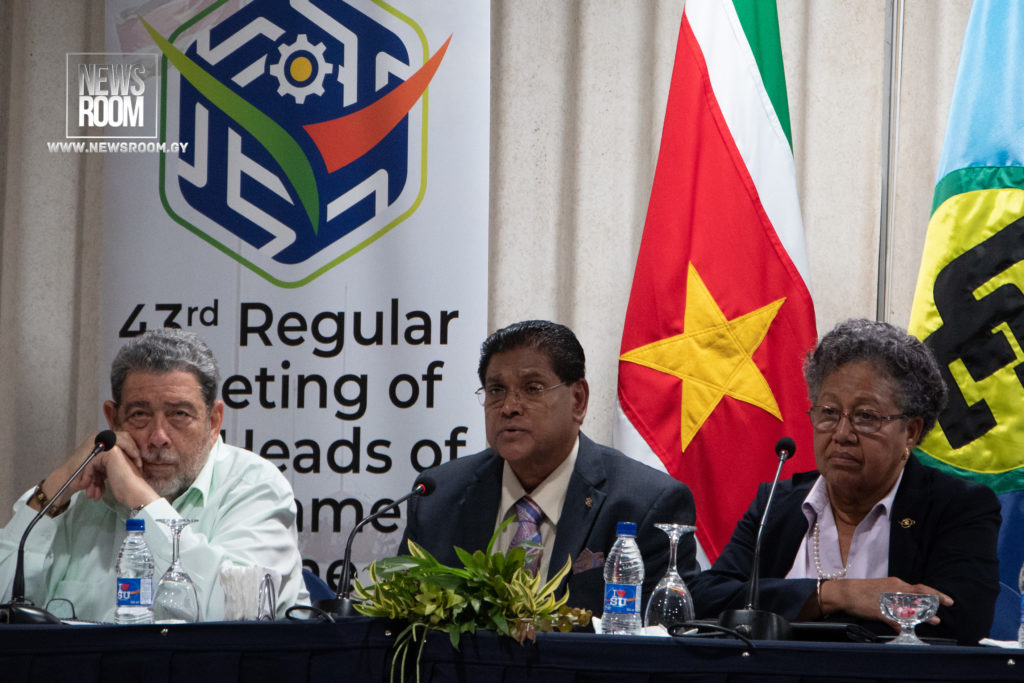
Guyana-led agri agenda progressing with more free movement of people, goods
The Guyana-led food security agenda within the Caribbean Community (CARICOM) is progressing after Caribbean leaders approved more categories of people able to work freely in the region.
The leaders have also mandated that regulatory bodies within the region conclude, by the end of this month, decisions on the non-tariff barriers that constrain the movement of food throughout the region.
These decisions were announced on Tuesday night by Surinamese President, who is the incumbent CARICOM Chairman, Chandrikapersad Santokhi and CARICOM Secretary- General Dr. Carla Barnett.
After years of discussions, the leaders agreed to the definitions and qualifications needed by agricultural workers (or farmers), household domestic workers and security officers to enable them to move freely under the bloc’s single market and economy arrangement.
President Santokhi said this move comes as he pledged to “take action” as the new CARICOM Chairman. And this is one way to allow Caribbean people to move more freely, while simultaneously aiding the regional agro-food agenda.

The Secretary- General elaborated on this, explaining the Secretariat will now work with individual countries to amend local laws- if need be- to facilitate the free movement of these categories of people.
Meanwhile, President Santokhi also announced that further progress has been made on removing restrictive intra-regional trade barriers. Specific attention was directed towards non-tariff barriers which include embargoes and restrictions on the importation of products.
“… we mandated the Council for Trade and Economic Development (COTED) to conclude by the end of this month the programmes aimed at the removal of all non-tariff barriers to intra-regional trade particularly agricultural goods,” President Santokhi said in his opening remarks at the concluding press conference of the CARICOM Head of Government meeting in Paramaribo, Suriname.
Asked for further clarity, the Surinamese Head of State only said that these actions are needed to advance Guyana’s plan for regional food security.
This plan involves increased food production and trade within the community, as opposed to a heavy dependence on costly extra-regional imports.
But Dr. Barnett explained that decision taken by the Heads of Government means that regional regulatory bodies, be it the veterinary associations or those focused on agricultural health, are now tasked with removing unreasonable barriers that prevent the free transportation of food.
“Wherever those protective regulations are there for the purpose of stopping transportation of agricultural commodities, those are where we need to sort it out.
“… at the end of the day, it is about ensuring that producers can ship their products but that there is necessary regulations in place because we still do need to ensure that we are not moving agricultural produce whether animal life, meat products or fruits and vegetables products that would cause pests would circulate throughout the region,” Dr. Barnett explained.
She underscored that the process of removing these barriers started before the just-concluded Heads of Government meeting.
This year, there has been an increased focus on resolving these barriers to trade following Guyana’s presentation of an agri-masterplan during the CARICOM intersessional meeting in Belize and then at the regional agricultural investment forum in Guyana.






